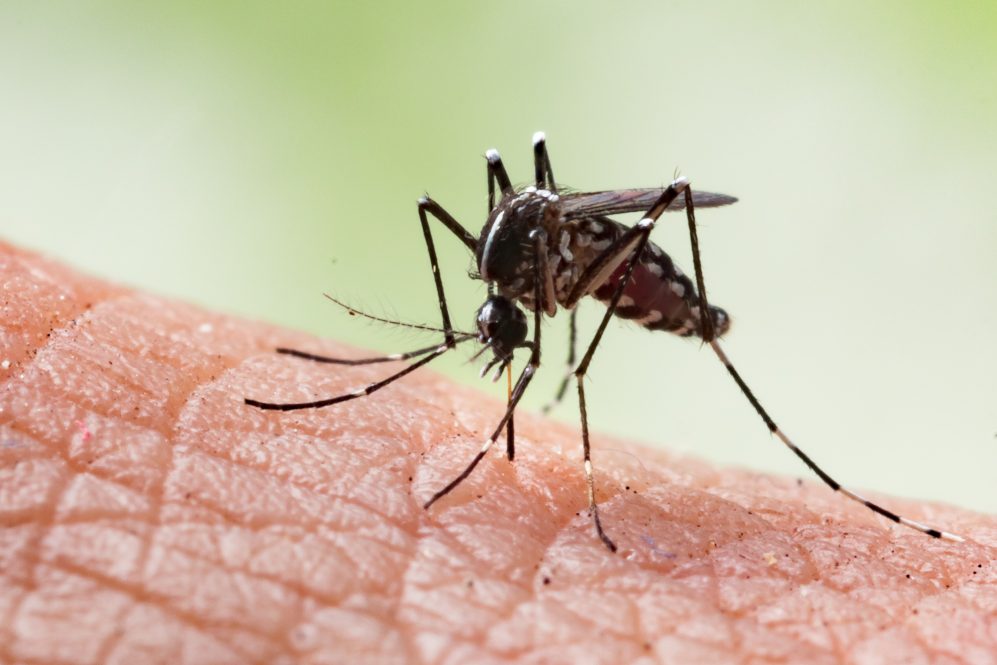The Connecticut Department of Agriculture announced on Wednesday, Oct. 4 the first equine case of Eastern equine encephalitis (EEE) for 2023.
The adult horse, which resided in New London County, began exhibiting neurological signs before being euthanized on Oct. 1. Diagnostic samples collected and sent to the Connecticut Veterinary Medical Diagnostic Laboratory (CVMDL) at the University of Connecticut in Storrs confirmed a diagnosis of EEE virus in the unvaccinated animal.
The CVMDL also detected EEE virus the previous week in a 10-year-old male emu in Windham County, which is near several towns that have mosquitos that tested positive for EEE this year. Like the horse, the emu showed neurological signs when it died. Diagnostic samples were sent to the CVMDL for West Nile testing. CVMDL determined the animal tested positive for EEE virus.
EEE causes a rare but severe disease in humans and equids, animals in the horse family. In its natural cycle, EEE circulates between birds and mosquitoes. EEE is classified as a select agent in the US due to the potential to pose a severe threat to animal and public health.
The CVMDL detected EEE in both the horse and emu by means of RT-qPCR, and results were communicated to the Connecticut Department of Agriculture and Office of State Veterinarian within hours of detection. This is the third case of EEE detected by the CVMDL since September 2023. The first was a donkey from Rhode Island.
“This detection highlights the importance of vaccinations and continued precautions that owners should undertake to protect their animals from mosquito-borne illnesses,” says Connecticut State Veterinarian Dr. Jane Lewis. “Horses are the domestic animals most susceptible to infection with mosquito-borne illnesses such as EEE.”
Data collected by The Connecticut Agricultural Experiment Station (CAES) in 2023 suggests an increased number of mosquitoes carrying EEE. CAES is responsible for trapping, identifying, and testing mosquitoes for encephalitis viruses conducting a statewide surveillance program annually.
EEE is not spread by horse-to-horse or horse-to-human contact. It is a viral disease transmitted through the bites of mosquitoes.
Equine owners are encouraged to implement the following, in coordination with their veterinarian, including:
- Administering the initial two-dose vaccine series, four to six weeks apart
- Administer regular boosters at least annually
- Consult with your veterinarian if boosters are needed every six months
- Give vaccinations at least one month prior to mosquito season to develop protective immunity
- Remove sources of standing water to eliminate mosquito breeding grounds
- Clean and refill water troughs regularly
- Apply fly sprays containing pyrethrin regularly
If your horse is showing neurologic signs like hyperexcitability, tremors, convulsions, paralysis, head tilt, head pressing, incoordination, drowsiness, recumbency, colic, or death, it’s important to call a veterinarian to determine a diagnosis and treatment. Neurologic diseases of domestic animals, such as EEE, West Nile Virus, and Rabies, are reportable to the State Veterinarian at 860-713-2505. For more information, on animals and animal health, visit the state website.
The CVMDL is part of the Department of Pathobiology and Veterinary Science in the College for Agriculture, Health and Natural Resources (CAHNR). It is one of the most active service centers at the University of Connecticut supporting surveillance of potentially harmful human and animal diseases. The CVMDL is an AAVLD- (American Association of Veterinary Laboratory Diagnosticians) accredited laboratory and a member of the National Animal Health Laboratory Network (NAHLN).
Follow UConn CAHNR on social media



